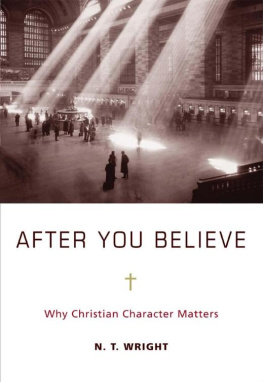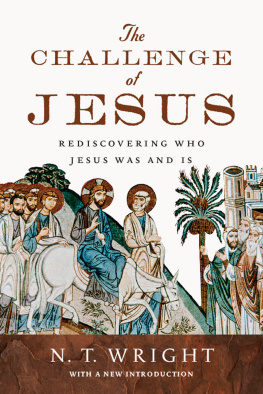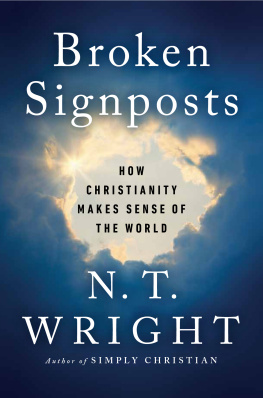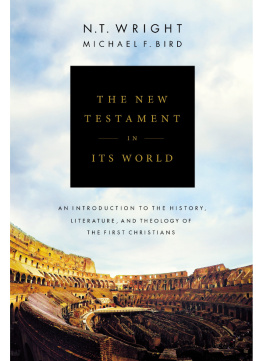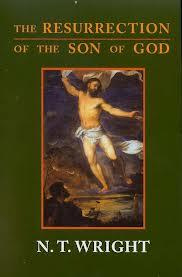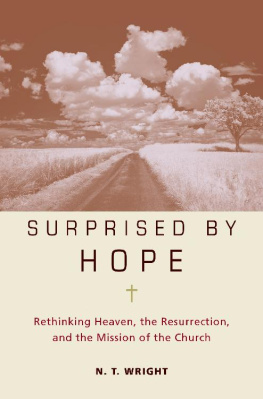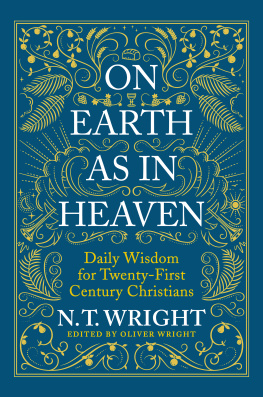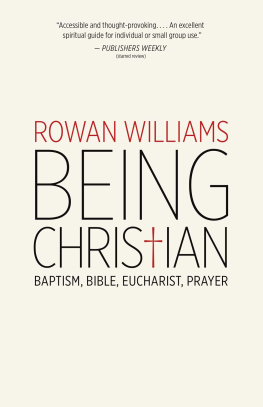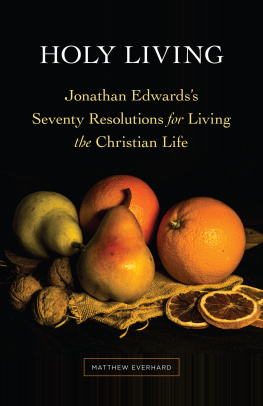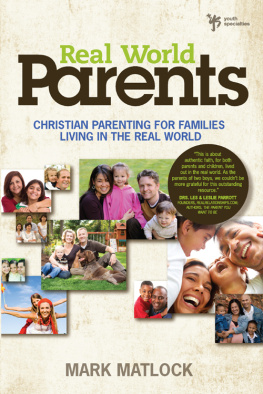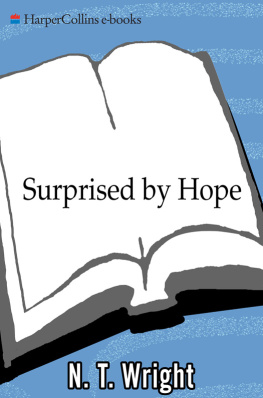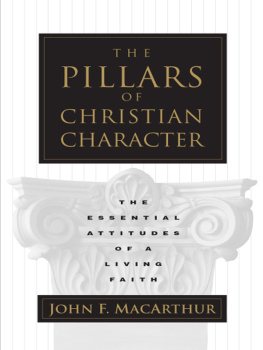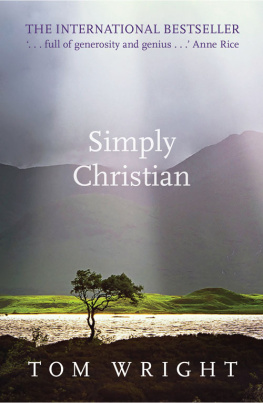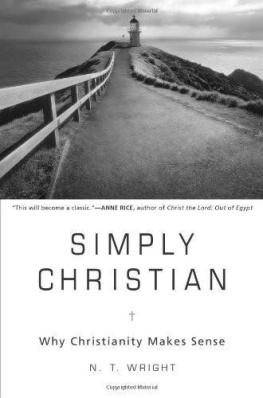This book is a kind of sequel to Simply Christian and Surprised by Hope . There I set out (among other things) what seems to me a basic principle of early Christianitynamely, that God the creator intends to bring heaven and earth together at last, and that this plan has been decisively inaugurated in Jesus Christ. This vision has radical implications for every aspect of how we think about Christian faith and life. In Surprised by Hope , in particular, I argued that the final hope of Christians is not simply going to heaven, but resurrection into Gods new creation, the new heaven and new earth.
Part of the point of all this is that resurrection and new creation have, according to the first followers of Jesus, already begun to happen, precisely because of what happened to Jesus himself at Easter. I began, in both those earlier books, to point on to some of the ways this might play out in terms of Christian responsibility in and for the world, and not least in terms of Christian behavior. In the present book I seek to develop this theme much further, with particular attention to the notion of Christian character and virtue. The basic point is this: Christian life in the present, with its responsibilities and particular callings, is to be understood and shaped in relation to the final goal for which we have been made and redeemed. The better we understand that goal, the better we shall understand the path toward it.
The result, offered here, is not a full account of ethics. It is certainly not a set of rules to cover all occasions, which is what some people expect from a book about Christian behavior. As I will explain, I think thats the wrong way to go about the whole thing. It is, rather, an exploration of how Christian character is formed, as a particular and focused example of how character is formed in general. I have given particular attention to the close reading of some key New Testament texts, which I think are often either misunderstood or toned down when approached from other points of view. And I have tried to bring out in particular the way in which the early Christians thought of questions about behavior not as a separate topic, but as one aspect of their larger aims: worship and mission.
I have tried to keep the level of writing accessible to people of all sorts, and have restrained myself from entering into the many fascinating contemporary debates about Christian behavior as a whole and in its particular parts. Those who know their way around these debates will see easily enough where I am following a line taken by this or that particular writer, or distancing myself from someone elses point of view. I have added a note at the end of the book to indicate some of the places where I have found help, and some of the debates to which, I venture to hope, this book may, in small measure, have something to contribute. In particular, I hope to have reminded readers of the New Testament that the great tradition which discusses behavior in terms of virtue has more to offer than they may have thought, and also to have reminded people who have theorized about virtue that the New Testament has more to offer them than they seem to have supposed. But the main point of the book lies elsewhere: to stimulate tomorrows Christians of whatever sort, and in whichever tradition, to be encouraged and excited by the pursuit of virtue in its specifically Christian form, and to have their character shaped, together and individually, to become the human beings God meant us to be, which means being concerned primarily with worship and mission and with the formation of our own character as the vital means to that double end.
To those coming to a specifically Christian book from the outside, as it were, I would say this. I have written elsewhere about the reasons why I believe that, despite all the skepticisms of todays Western world, there might after all be a God who made the world and who is going to put it right at last. The dreams we have that refuse to diedreams of freedom and beauty, of order and love, dreams that we can make a real difference in the worldcome into their own when we put them within a framework of belief in a God who made the world and is going to sort it out once and for all, and wants to involve human beings in that process. We now approach these same issues from another angle. In a world where so much confusion abounds, how do we know what is good? And how do we discover what being human is really all about? This book is meant to offer a double challenge: to Christians, to think through the nature of Christian behavior from a new angle; to anyone and everyone, to think through what it means to be genuinely human. I am proposing that, when we really understand those two challenges, they eventually meet up.
This sort of book is not the place for entering into other controversies. I have assumed, for the present purpose, that Jesus of Nazareth did and said more or less what the four gospels in the New Testament say he did and said. I have written about all that, in debate with those who take radically different viewpoints, in considerable detail elsewhere. Likewise, I have assumed that St. Paul wrote Ephesians and Colossians, something which many scholars in the last century or so have doubted. Actually, the argument of the book doesnt depend on either of these assumptions, and for that reason, in addition to the risk of clogging up the present line of thought, I wont refer to these questions again.
In writing about the life of the church, and the challenges facing Christians in tomorrows world, I am uncomfortably aware that I really only know the contemporary Western church. I have enormously enjoyed meeting Christians from other parts of the world, and from traditions very different from my own, and I hope to go on learning things from them as well as about them. But I cant presume to speak about them here. Ideally, I should say modern Western Christians all the time, to reflect this, but that gets clunky and awkward. I trust that readers, particularly in other parts of the world, will take it for granted that I am speaking from my own limited perspective. I hope they will have not only the goodness to forgive me my parochial viewpoint but the good sense to transpose what I say into their own contexts.
Translations of the Bible are my own. Those from the New Testament are mostly taken from the translation I have provided in the Everyone series of New Testament guides ( Matthew for Everyone , etc.), published by SPCK in London and Westminster John Knox in Louisville, Kentucky.
As always, I am very grateful to my publishers and editors, particularly Mickey Maudlin and Mark Tauber at HarperOne and Simon Kingston and Joanna Moriarty at SPCK, for all their help and encouragement; and to my colleagues in Durham for their continuing support. I have expressed my thanks to various colleagues for their help in the Afterword.
My wife deserves particular gratitude for her tenacious enthusiasm for my writing and her ready willingness to put up with the usual domestic consequences at a time when other unexpected pressures were crowding upon her. One cannot write about virtue without thinking about love, and I cannot think about love without thinking about her. I have dedicated two other books to her, each of which marked a serious turning point in my life and work. This one comes, as ever, with love and gratitude, but with both of those qualities formed, over further years, into a still deeper habit of the heart.
N. T. Wright
Auckland Castle
Spring 2009

